CNN
—
It’s a stark picture in 2023: riot police flood a village, drag people out of their homes, and demolish structures to make way for excavators to access the rich. Coal seam Under the ground.
Since Wednesday, police have cleared hundreds of activists as rain and wind battered the small West German village of Lützerath. Some have been in Lutzerath for more than two years, occupying abandoned houses after former residents were evicted.
More than 1,000 policemen are involved in the evacuation. Most of the buildings have now been cleared, but some activists were sheltering in wooden houses or hiding in a hole dug in the ground on Friday, Aachen city police said.
Organizers of the protest expected thousands more to arrive in the area on Saturday to demonstrate against its destruction, although in the end they were unable to reach the village. Once the exit is complete, RWE plans to close 1.5 km perimeter fence Snaking around Lützerath, the village’s buildings, streets and sewers were sealed before being demolished.
However, activists have vowed to continue fighting for the village.
“We are taking action against this destruction by putting our bodies in the path of excavation,” said Ronnie Zeppelin of the campaign group Lützerath Lives.
Lutserath, 20 miles west of Düsseldorf, has long been a climate flashpoint in Germany, as it sits on the edge of the Karsweiler II open-pit lignite coal mine.
The mine spans about 14 square miles (35 square kilometers) in North Rhine Westphalia (NRW) – a large, jagged crater in the landscape.
Its slow creep over the years has already swallowed it up Villages where families live for generations. caused to be destroyed Centuries old buildings and Even a windmill.
RWE has long planned to further expand the mine, facing criticism from climate groups. Lignite is the most polluting form of coal The most polluting fossil fuel.
Until 2013, the German courts ruled The company was able to expand even at the expense of nearby villages.
As a continuation of that Green wins Some hoped the expansion would be canceled in the 2021 federal elections, said David Dresen, part of the climate group Aller Dörfer bleiben (All Villages Stay), who lives in Kukum, a village slated for destruction.
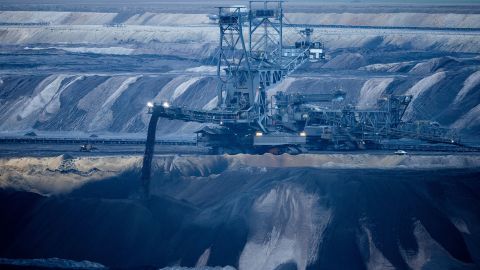
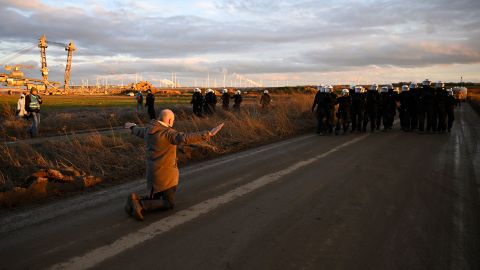
But in October 2022, the government struck a deal with RWE that spared several villages – including Kukum – but allowed Lützerath to be demolished to give RWE access to the coal beneath it.
In return, RWE agreed to phase out its coal from 2038 to 2030.
The Greens chalk it up as a win.
“We were able to save five villages and three farms from being destroyed, forcibly resettle 500 people and evacuate the coal within eight years,” said Martin Lechteb, spokesman for the North Rhine Westphalia Green Party. Email to CNN.
The Green Party and RWE say the expansion will help ease Ukraine’s energy crisis, which has cut gas supplies.
This is “not a renaissance of lignite or coal, but only a side-step – helping Germany deal with the energy crisis,” RWE spokesman Guido Steffen told CNN in an email.
Climate groups strongly oppose the deal. Continued burning of coal for energy would exhaust planet-warming emissions and defy the Paris climate agreement’s ambition to limit global temperature rise to 1.5 degrees. Celsius above pre-industrial levels.
Both RWE and the Greens reject claims that mining expansion will increase overall emissions, saying European caps could offset the extra carbon emissions.
Many feel betrayed by the Green Party, including the people who voted for them.
“It’s a ridiculous and disastrous situation, Germany, a country we think is green [policies]Destroying a village to burn coal in the midst of a climate crisis,” said Dresen, who voted Green in recent elections.
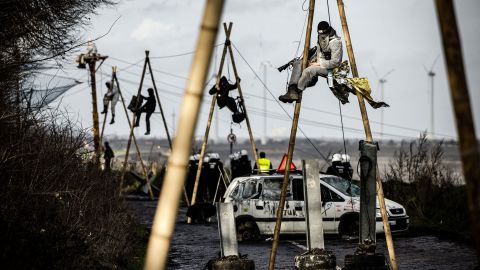
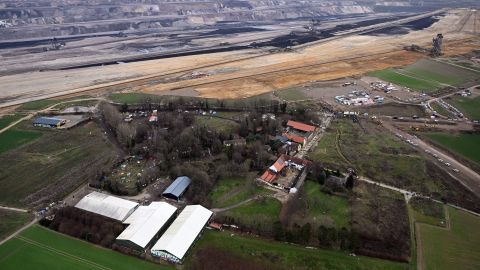
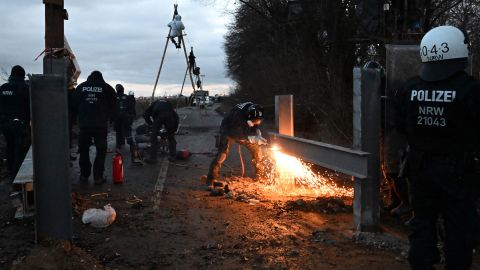
Fabian Huebner, campaigner on energy and coal at Europe Beyond Coal, said: “I think the Greens, faced with very difficult decisions, took a wrong turn and prioritized climate policy.”
Germany should instead accelerate the clean-energy transition, including the rapid roll-out of renewables and energy efficiency measures: “The crisis cannot be solved with the energy source that basically created this crisis.”
Some studies suggest Germany doesn’t even need more coal. An August Report Coal Transitions, an international research platform, found that although coal plants will operate at maximum capacity until the end of this decade, they will have more coal than they need from existing supplies.
It was a deeply embarrassing moment for the Greens and an unfathomable disaster for those who wanted to save the village.
“The images of Lützerath are certainly distressing, as we have always fought against the continued burning of coal,” said Lechtape on behalf of the NRW Green Party. “We recognize the importance of Lutzerath as an icon in the climate movement. However, this should not overshadow what has been achieved,” he added.
The party’s discomfort could deepen on Saturday when a protest organized by a coalition of climate groups – including Swedish climate activist Greta Thunberg – is expected to draw thousands of people to Lutzerat.
“It’s up to us now to stop the wrecking balls and the coal mines. We will not make this exodus any easier,” said Pauline Brunker from the Friday Climate Group for the Future.
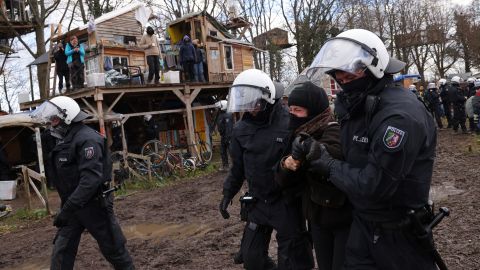
Even if the village is completely evacuated and access is restricted before Saturday, climate groups say the protest will continue.
Dina Hamid, a recently expelled activist with Lützerath Lebt, told CNN, “In the end, it’s not about the village, it’s about the coal that stays in the ground, and we’ll fight for it as long as it takes.”

“Friend of animals everywhere. Devoted analyst. Total alcohol scholar. Infuriatingly humble food trailblazer.”